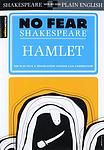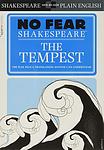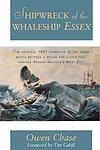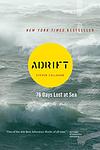The Greatest "Shipwrecks" Books of All Time
Click to learn how this list is calculated.
This list represents a comprehensive and trusted collection of the greatest books. Developed through a specialized algorithm, it brings together 284 'best of' book lists to form a definitive guide to the world's most acclaimed books. For those interested in how these books are chosen, additional details can be found on the rankings page.
Genres
The "Shipwrecks" category of books encompasses stories that revolve around the sinking or destruction of a ship at sea. These books may focus on the events leading up to the shipwreck, the survival or rescue efforts of the crew and passengers, or the aftermath of the disaster. They may also explore the historical significance of famous shipwrecks or the mysteries surrounding lost vessels. Overall, the "Shipwrecks" category offers readers a thrilling and often harrowing glimpse into the dangers and uncertainties of life on the high seas.
Countries
Date Range
Reading Statistics
Click the button below to see how many of these books you've read!
Download
If you're interested in downloading this list as a CSV file for use in a spreadsheet application, you can easily do so by clicking the button below. Please note that to ensure a manageable file size and faster download, the CSV will include details for only the first 500 books.
Download-
1. Moby Dick by Herman Melville
The novel is a detailed narrative of a vengeful sea captain's obsessive quest to hunt down a giant white sperm whale that bit off his leg. The captain's relentless pursuit, despite the warnings and concerns of his crew, leads them on a dangerous journey across the seas. The story is a complex exploration of good and evil, obsession, and the nature of reality, filled with rich descriptions of whaling and the sea.
-
2. Gulliver's Travels by Jonathan Swift
This classic satire follows the travels of a surgeon and sea captain who embarks on a series of extraordinary voyages. The protagonist first finds himself shipwrecked on an island inhabited by tiny people, later discovers a land of giants, then encounters a society of intelligent horses, and finally lands on a floating island of scientists. Through these bizarre adventures, the novel explores themes of human nature, morality, and society, offering a scathing critique of European culture and the human condition.
-
3. Robinson Crusoe by Daniel Defoe
The book is a classic adventure novel about a man who spends 28 years on a remote tropical island near Trinidad, encountering cannibals, captives, and mutineers before being rescued. The story is noted for its realistic portrayal of the protagonist's physical and psychological development and for its detailed depiction of his attempts to create a life for himself in the wilderness. The novel has been interpreted as an allegory for the development of civilization, as well as a critique of European colonialism.
-
4. Treasure Island by Robert Louis Stevenson
This classic adventure novel tells the story of young Jim Hawkins, who stumbles upon a treasure map and embarks on a perilous journey to find the buried treasure. Along the way, he encounters a host of memorable characters, including the cunning and treacherous Long John Silver. The narrative is filled with action, intrigue, and suspense, as Hawkins and his companions face pirates, mutiny, and other dangers in their quest for the hidden treasure.
-
5. First Folio by William Shakespeare
This collection is a compilation of 36 plays by a renowned English playwright, published seven years after his death. It includes comedies, histories, and tragedies, some of which had never been published before. Notable works in the compilation include "Macbeth," "Julius Caesar," "Twelfth Night," "The Tempest," and "As You Like It." The collection is considered one of the most influential books ever published in the English language, as it preserved many of the playwright's works that might have otherwise been lost.
-
6. The Tempest by William Shakespeare
"The Tempest" is a classic play about a sorcerer and rightful Duke of Milan who has been stranded on an island for 12 years with his daughter after being betrayed by his brother. Using his magical powers and the help of an airy spirit, he conjures a storm to shipwreck his brother and other enemies on the island. The narrative explores themes of revenge, power, magic, and forgiveness as the sorcerer manipulates events on the island to regain his dukedom and secure a good future for his daughter.
-
7. The Bone People by Keri Hulme
"The Bone People" is a complex, emotional novel that explores the lives of three characters - a reclusive artist, a young mute boy, and his adoptive father - in New Zealand. The narrative delves into themes such as Maori culture, love, violence, and isolation while showcasing the struggle of these individuals as they try to form a family unit despite their personal traumas and societal pressures. The book's unique blend of prose and poetry, along with its blend of English and Maori language, adds to its depth and richness.
-
8. Kidnapped by Robert Louis Stevenson
This adventure novel follows the journey of a young Scottish man, David Balfour, who is tricked by his uncle and sold into slavery. After being shipwrecked, he partners with a Jacobite rebel, Alan Breck Stewart, and they journey across the Scottish Highlands, evading authorities and battling foes. Throughout the narrative, themes of justice, friendship, and courage are explored, set against the backdrop of 18th-century Scottish politics.
-
9. In the Heart of the Sea by Nathaniel Philbrick
This historical narrative tells the true story of the 19th-century whaleship Essex, which was rammed and sunk by a sperm whale in the South Pacific. Stranded thousands of miles from land, the crew of the Essex was pushed to their limits and forced to do the unthinkable to stay alive. The tale explores the harrowing ordeal of these men through their long journey at sea, their encounters with nature's fury, hunger, disease, and their own fear and despair.
-
10. The Perfect Storm by Sebastian Junger
This non-fiction book narrates the story of the Andrea Gail, a commercial fishing vessel that was lost at sea during the "Perfect Storm" of 1991. The author combines meteorological science, history, and personal accounts to paint a vivid picture of the harrowing ordeal faced by these six fishermen. The book also explores the dangerous profession of deep-sea fishing and the tight-knit communities that are affected by such tragedies.
-
11. Far Tortuga by Peter Matthiessen
This novel tells the story of a group of Caribbean turtle fishermen who set out on a dangerous journey to the remote island of Far Tortuga. The narrative unfolds through the use of dialect, sea charts, and poetry, creating a vivid and unique portrayal of the men's struggle for survival against the harsh realities of the sea. As the crew faces various challenges, their story explores themes of man's relationship with nature, the passage of time, and the inevitability of death.
-
12. The Terror by Dan Simmons
"The Terror" is a historical fiction and horror novel that follows the ill-fated Franklin Expedition. The crew of two British Royal Navy ships are trapped in the Arctic ice, where they face not only the harsh environmental conditions but also a mysterious and brutal monster that stalks them in the endless night. The novel combines historical and survival themes with supernatural horror, creating a chilling and suspenseful atmosphere.
-
13. Shadow Divers by Robert Kurson
This non-fiction book chronicles the dangerous and suspenseful adventure of two deep-sea wreck divers who, in 1991, discovered a sunken German U-boat off the coast of New Jersey. Despite the risks and the skepticism of experts, the divers became obsessed with identifying the seemingly untraceable submarine. Their quest for answers led them to delve into historical records and put their lives on the line during numerous dives, ultimately revealing the U-boat's identity and bringing closure to a long-lost chapter of World War II history. The story is a testament to the power of curiosity, perseverance, and the human spirit's drive to solve the mysteries of the past.
-
14. Shipwreck of the Whaleship Essex by Owen Chase
This book is a first-hand account of the infamous maritime disaster involving the sinking of a whaleship by a sperm whale in the South Pacific. It chronicles the harrowing experiences of the ship's crew who were left stranded in the open sea for months. The survivors faced starvation, dehydration, and resorted to cannibalism in their desperate struggle for survival. The narrative serves as a testament to human endurance and resilience in the face of extreme adversity.
-
15. Adrift by Steven Callahan
"Adrift" is a gripping true story of a man who survives 76 days lost at sea. After his small sailboat is destroyed in a storm, the author fights for survival on an inflatable life raft, facing relentless sun, violent storms, shark attacks, and the constant, gnawing hunger. His resourcefulness and will to live is a testament to the human spirit and its instinctual will to survive, even in the face of seemingly insurmountable odds.
Reading Statistics
Click the button below to see how many of these books you've read!
Download
If you're interested in downloading this list as a CSV file for use in a spreadsheet application, you can easily do so by clicking the button below. Please note that to ensure a manageable file size and faster download, the CSV will include details for only the first 500 books.
Download













